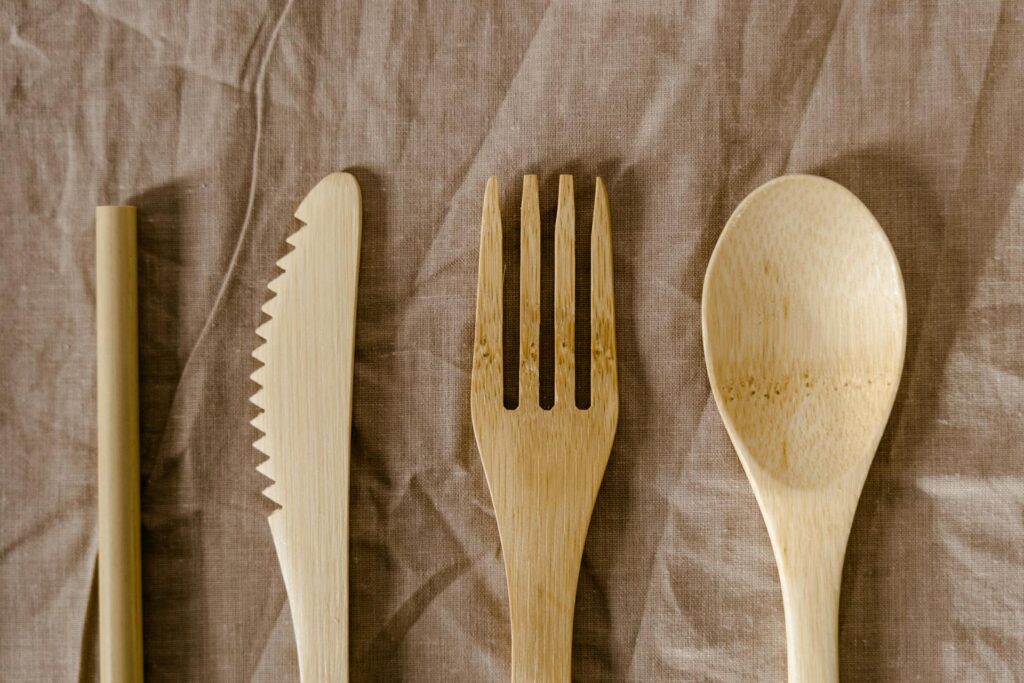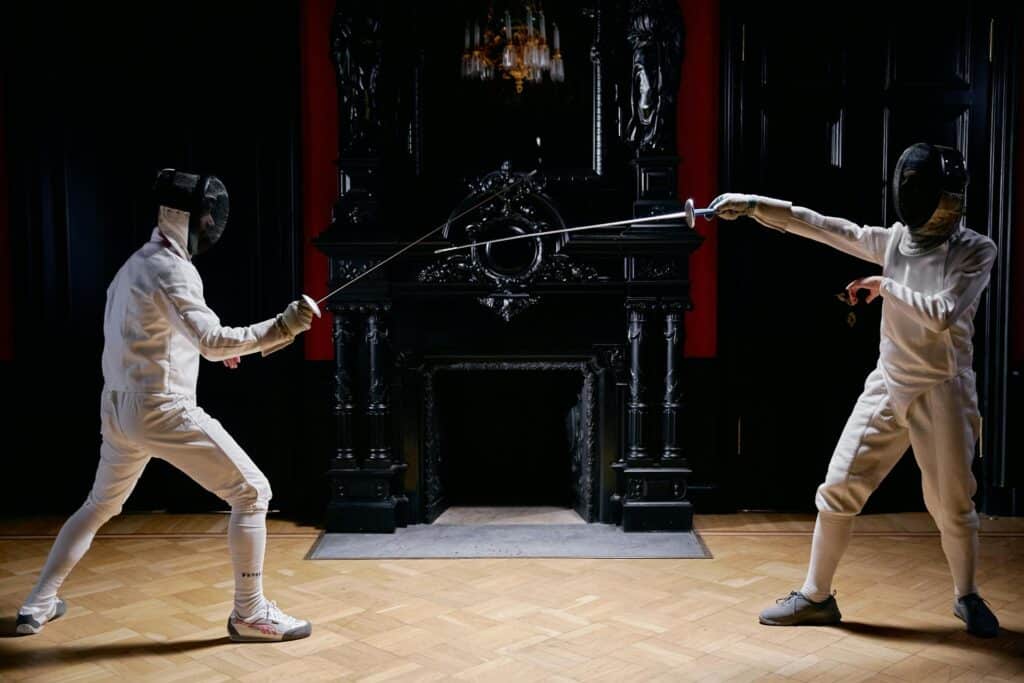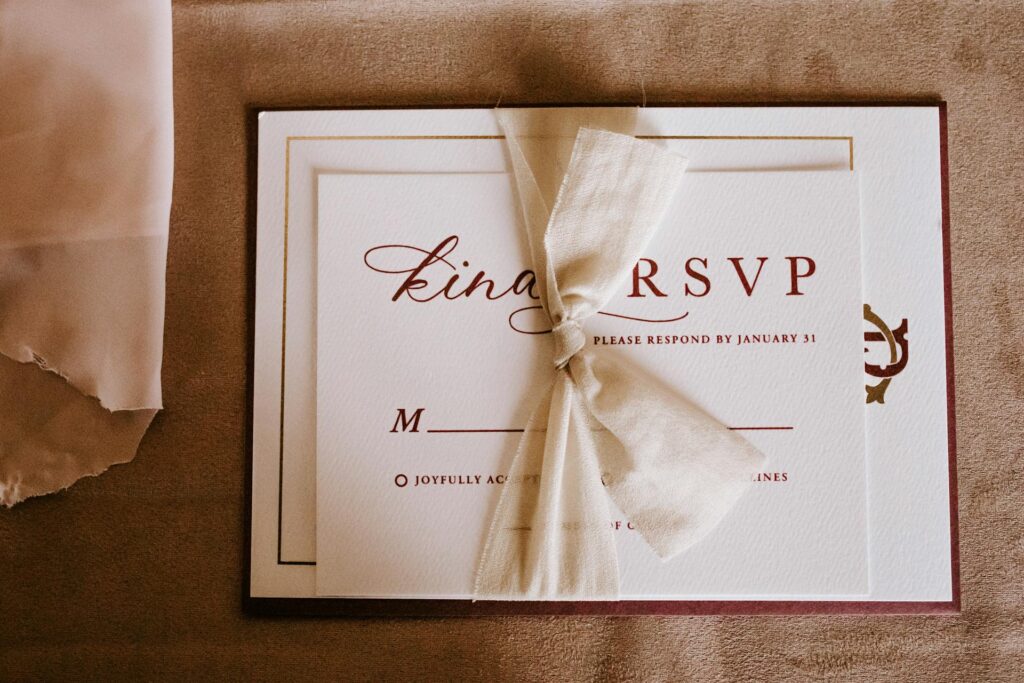
12 English Words That Come From French
English is a remarkably rich language, mainly because of its historical contact with foreign languages and cultures.
One of the major influences on English is French, which makes sense if you consider that Britain sits just across a narrow channel from France.
Today, we’re going to look at some of these surprising English words that come from French. Note that they’re different from French words in English (which have largely remained unchanged between the two languages), in that their modern spellings and meanings have changed significantly.
Contents
- 1. Perfume
- 2. Money
- 3. Denim
- 4. Advice
- 5. Honesty
- 6. Habit
- 7. Modern
- 8. Sport
- 9. Utensil
- 10. War
- 11. Touche
- 12. RSVP
- Why Are English and French So Similar?
- And one more thing...
Download: This blog post is available as a convenient and portable PDF that you can take anywhere. Click here to get a copy. (Download)
1. Perfume
French word of origin: parfum
This is possibly the quintessential example of an English word that comes from French. Both have their roots in the Latin perfumare, meaning “to smoke through.”
To this day, parfum is still used to refer to fragrances that have a 20 percent oil concentration—the highest of all the fragrances including eau de parfum and eau de toilette . (Incidentally, both of these words also come from French!)
2. Money
French word of origin: monnaie
While it might look and sound English, “money” is actually a word that was used in France in various other versions before it made its way over to England and beyond. It essentially replaced the Middle English word schat (money/treasure).
The word monnaie is still used in French today, normally to describe cash or loose change.
3. Denim
French word of origin: de Nîmes
Unlike many other words from France, “denim” has a more modern history—and once you know about this one, you’ll probably not forget it in a hurry!
Before Levi Strauss made jeans the item to own, the material was constructed in the French town of Nîmes, hence the name de Nîmes (from Nîmes).
4. Advice
French word of origin: avis
Modern day French has the word avis (opinion), which you may already be aware of. In Old French, the phrase ce m’est à vis was originally used to mean “in my view.”
While the French still say à mon avis to communicate a similar idea, the English took the last word only, transforming it to “advice.”
5. Honesty
French word of origin: honesté (Old French)
The modern French word for honesty, honnêteté , might be a mouthful, but at least the spelling is similar to the English word.
6. Habit
French word of origin: habit
In French, habit can mean “clothing.” In fact, English still uses the word “habit” to refer to a nun’s attire. The modern French word for having a “habit” is habitude .
Presumably, because wearing a “habit” is something those who belong to a religious order do regularly, the word has since come to mean something we do regularly, period.
7. Modern
French word of origin: moderne (Middle French)
While you could easily be forgiven for thinking that the French word moderne was taken from English, it’s actually the other way around. This one was lifted from the Middle French moderne, which appeared by way of Latin.
8. Sport
French word of origin: desporter (Old French)
You might assume the French word sport was lifted from English. In fact, it started off with the Old French word desporter , which was used to describe something you took pleasure in doing.
Eventually, desporter came into English as “disport,” which transformed into just “sport.” In the early 19th century, French borrowed the word back from English. What a journey this word has been through!
9. Utensil
French word of origin: utensile (Old French)
Although “utensil” sounds as if it might have Germanic origins, that’s not the case. The Old French word utensile came from the Latin ūtensilis, meaning “useful.” The modern French word is ustensile .
10. War
French word of origin: werre (Old North French word)
The Old North French word for war, werre, looks much more similar to English than the current French guerre .
Like the Cornish in the United Kingdom, the ancient cultures of the northern Breton region had their own language, which differed hugely from Old French. It’s therefore possible that, in this case, it was Breton French that influenced English.
11. Touche
French word of origin: touchier (Old French)
English speakers use this French word after a smart-aleck remark or quick, witty response. In fencing, touché can also mean “hit,” which is also what touchier (its word of origin) means.
Outside of a fencing or battling context, touché also means “touch” in French.
12. RSVP
French word of origin: répondez, s’il vous plait
You probably associate RSVP with invitations, but I’ll bet you’ve never actually thought about what it really means! It’s a French acronym that stands for répondez, s‘il vous plait (“Respond If It Pleases You” or “Respond If You Please”).
Why Are English and French So Similar?
Most modern English words of French origin were brought over during the Norman conquest of England in 1066. After England was taken over by the French, the country fell under significant influence from the leader at the time, William the Conqueror. While the French later left the country for warmer climes, much of their language stuck around.
For that reason, whenever we express ourselves in French, we’re tapping into years of French linguistics.
Many very English-sounding words are merely altered versions of their French origins.
The next time you talk to someone in English, pay attention. You’re probably using a large number of French words without even realizing it!
Download: This blog post is available as a convenient and portable PDF that you can take anywhere. Click here to get a copy. (Download)
And one more thing...
If you like learning French vocabulary on your own time and from the comfort of your smart device, then I'd be remiss to not tell you about FluentU.
Other sites use scripted content. FluentU uses a natural approach that helps you ease into the French language and culture over time. You’ll learn French as it’s actually spoken by real people.
FluentU has a wide variety of great content, like interviews and web series, as you can see here:

FluentU brings native videos within reach with interactive subtitles.
You can tap on any word to look it up instantly. Every definition has examples that have been written to help you understand how the word is used.

For example, if you tap on the word "crois," you'll see this:

Practice and reinforce all the vocabulary you've learned in a given video with FluentU's adaptive quizzes. Swipe left or right to see more examples for the word you’re learning and play the mini-games found in the dynamic flashcards, like "fill in the blank."

As you study, FluentU tracks the vocabulary that you’re learning and uses this information to give you a 100% personalized experience.
It gives you extra practice with difficult words—and reminds you when it’s time to review what you’ve learned.
Start using the FluentU website on your computer or tablet or, better yet, download the FluentU app from the iTunes or Google Play store. Click here to take advantage of our current sale! (Expires at the end of this month.)














